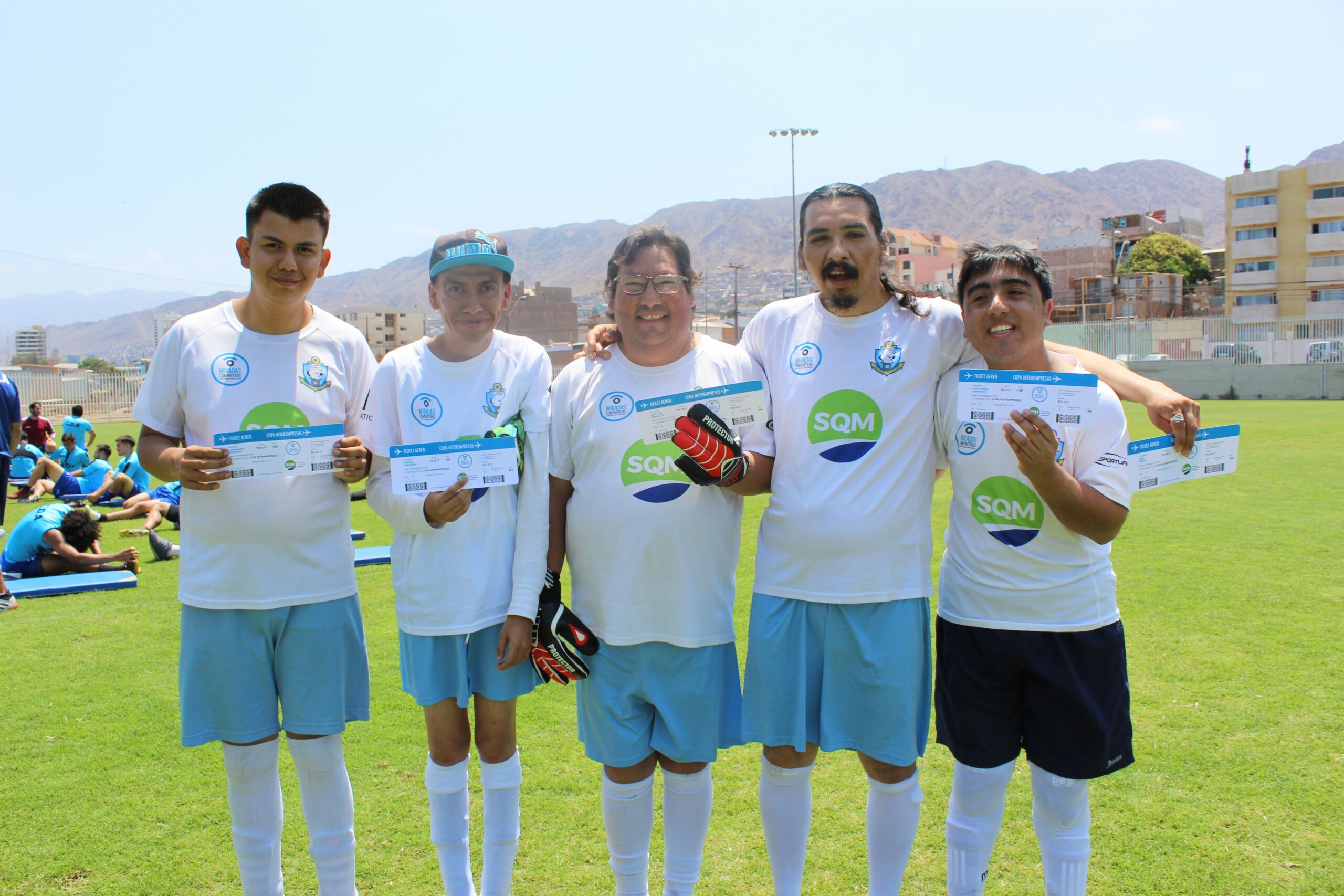News
Sports as a Vehicle for Inclusiveness: The Benefits for People with Disabilities

The Miradas Compartidas Foundation and SQM developed a webinar addressing how physical activity benefits the mental and emotional health of young people living with disabilities. At the event, Jonathan Astudillo—a promising young Paralympic powerlifter—shared his experience.
Sports and exercise provide diverse benefits to people with disabilities, not only physical but also mental and emotional, that contribute to improving their quality of life and involvement in society.
This topic was addressed on Emol TV in the August 19th webinar entitled “Sports as a Vehicle for Inclusiveness,” organized by SQM and the Miradas Compartidas Foundation, entities that have partnered with each other over the past four years to generate social integration through sports-related initiatives in northern Chile in towns like Tocopilla, Antofagasta, María Elena and Huara.
One of the event’s many participants was Felipe Olavarría, founder and CEO of the Miradas Compartidas Foundation, an organization devoted to generating social and job-related projects for people living with disabilities.
Another participant was Joselyn Godoy, a physical therapist in charge of the Adapted Physical Activity Area at Universidad Andrés Bello, who praised the opportunity to further education about inclusion and sports, commenting: “I think that activities like this webinar are crucial to bringing disability closer to the rest of the community. I am talking about not only from a sports perspective, but also in the areas of work, education and recreation.”
Jonathan Astudillo, a promising young Paralympic powerlifter, also took part in this event and underscored the importance of sports as a vehicle for inclusiveness. The high-performance athlete explained that: “Sports are a great tool for social inclusion, since they enable people to focus on developing their capacities, setting goals and working towards them every day.”
The goal of developing sports, artistic, educational and technical training programs is to promote inclusiveness and maximize their capacities. Bárbara Blumell, Deputy Manager of People at SQM, commented: “We are very proud of the work being done with Miradas Compartidas. Our corporate volunteer program has been key. Participating workers take part in sports activities with the young people from the foundation, helping to create spaces of integration and inclusion revolving around sports.”
The executive also highlighted how the company’s Human Resources Area for the Antofagasta Region, where the program has been in place for four years, undertook their first workplace inclusion effort by hosting their first professional intern with a disability. In preparation, the SQM team first underwent training to ensure a successful experience. The first intern was Andrés Villa, who successfully completed his internship, thereby paving the way for other interns with intellectual disabilities to take on the challenge of joining the SQM family.
